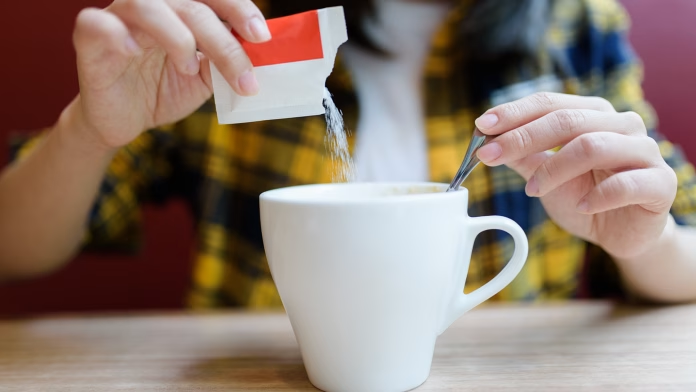The World Health Organization (WHO) has recently released new guidelines on non-sugar sweeteners (NSS), advising against their consumption. This recommendation aims to combat unhealthy weight gain and reduce the risk of non-communicable diseases.
Packaged food and beverages often incorporate a range of non-sugar sweeteners, including aspartame, neotame, saccharin, stevia, sucralose, and cyclamates. These sweeteners are also available as individual products and are commonly used as substitutes for sugar. They are generally considered to be low in calories and are believed to assist in weight management.
However, as per the guidelines provided by the World Health Organization (WHO), non-sugar sweeteners (NSS) do not provide any long-term advantages in terms of weight control for both adults and children. On the contrary, the utilization of these NSS can result in “undesirable effects,” such as an elevated risk of type 2 diabetes, cardiovascular disease, and even mortality in adults.
Francesco Branca, WHO Director for Nutrition and Food Safety, said, “Replacing free sugars with NSS does not help with weight control in the long term. People need to consider other ways to reduce free sugars intakes, such as consuming food with naturally occurring sugars, like fruit, or unsweetened food and beverages.”
The director further emphasized that non-sugar sweeteners (NSS) are not considered “essential dietary factors” and lack nutritional value. Encouraging individuals to adopt a less sugary diet from an early stage in life, he emphasized the importance of maintaining good health.
The World Health Organization (WHO) specified that their recommendation regarding non-sugar sweeteners (NSS) applies to everyone except individuals with pre-existing diabetes. The health agency also clarified that NSS can still be utilized in personal care and hygiene products like medications and skin creams. Additionally, the recommendation does not extend to low-calorie sugars and sugar alcohols, which are sugars or sugar derivatives that contain calories and do not fall into the category of NSS.
According to WHO, its guideline is part of a “suite of exiting and forthcoming guidelines on healthy diets that aim to establish lifelong healthy eating habits, improve dietary quality and decrease the risk of NCDs worldwide”.





